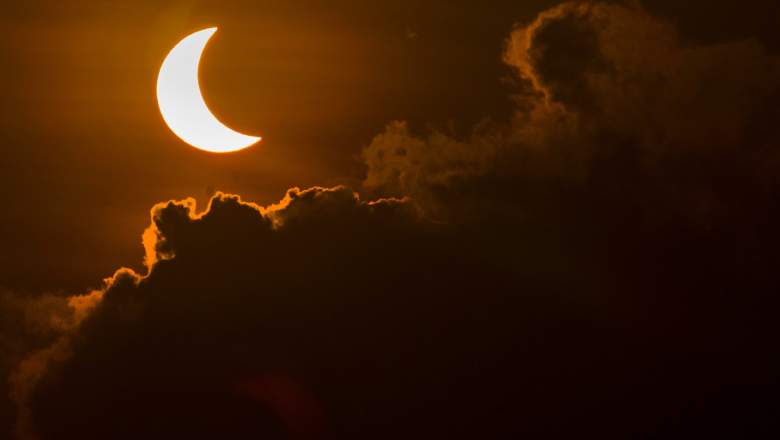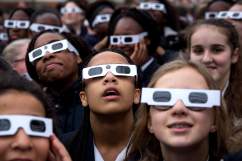
The total solar eclipse in the United States is a rare phenomenon. This is the first time total solar eclipse has been visible in the U.S. mainland since 1979, and the first time since 1918 that it’s been visible from coast to coast. We won’t have another total solar eclipse in the U.S. until 2024. But if you want to make sure you don’t miss the eclipse, especially if you’re in the path of totality, you’ll want to know exactly when the eclipse is happening. Since totality only lasts a couple minutes, you don’t want to miss out.
Here are the times that the total solar eclipse will begin across the country, courtesy of NASA. This chart tells you the time the eclipse begins and ends, along with the time that totality (when the sun is completely covered by the moon) begins and ends. The times are in each city’s local time zone. The exact seconds-count of the eclipse may vary slightly, so we’re only including the minutes count below. You’ll want to get outside to watch the eclipse early, rather than waiting until a few minutes before it begins, so you can enjoy the partial eclipse and really soak in the day, making sure you don’t miss anything. Remember to wear protective solar glasses if you’re looking at the sun.
| City Name | Eclipse Begins | Totality Begins | Totality Ends | Eclipse Ends |
| Madras, Oregon | 9:06 a.m. Pacific | 10:19 a.m. | 10:21 a.m. | 11:41 a.m. |
| Idaho Falls, ID | 10:15 a.m. MDT | 11:33 a.m. | 11:34 a.m. | 12:58 p.m. |
| Casper, Wyoming | 10:22 a.m. MDT | 11:42 a.m. | 11:45 a.m. | 1:09 p.m. |
| Lincoln, Nebraska | 11:37 a.m. Central | 1:02 p.m. | 1:03 p.m. | 2:29 p.m. |
| Jefferson City, MO | 11:46 a.m. Central | 1:13 p.m. | 1:15 p.m. | 2:41 p.m. |
| Carbondale, IL | 11:52 a.m. Central | 1:20 p.m. | 1:22 p.m. | 2:47 p.m. |
| Paducah, Kentucky | 11:54 a.m. Central | 1:22 p.m. | 1:24 p.m. | 2:49 p.m. |
| Nashville, TN | 11:58 a.m. Central | 1:27 p.m. | 1:29 p.m. | 2:54 p.m. |
| Clayton, Georgia | 1:06 p.m. Eastern | 2:35 p.m. | 2:38 p.m. | 4:01 p.m. |
| Columbia, SC | 1:13 p.m. Eastern | 2:41 p.m. | 2:44 p.m. | 4:06 p.m. |
As you can see from the chart, the solar eclipse begins in the west, in the morning of that time zone, and totality will happen in the late morning. As you move into the central time zone, the eclipse will begin in the late morning/around noon and totality will happen in the early afternoon. The eclipse will hit the Eastern region the latest of all, around 1 p.m. with totality happening between 2 and 3 p.m.
To see the exact time the eclipse in your city will start and end, check out NASA’s interactive map here.
